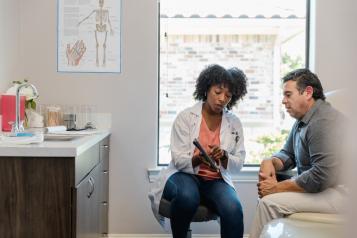Joint-letter about the dangers of ‘corridor care’

To: Wes Streeting MP, Secretary of State for Health and Social Care
Dear Secretary of State,
Last year, we were pleased to see you pledge to ‘consign corridor care to history where it belongs’. The practice has become a year-round scourge in our hospitals, as unsafe and undignified treatment in inappropriate spaces has become increasingly normalised. This winter the NHS is facing the inevitable surge in demand. Health and social care professionals and patients, their relatives and carers, are rightly worried about what the coming weeks and months may bring.
As a coalition of trade unions, professional bodies, charities and patient groups, we are clear that treating patients in corridors, on chairs and other inappropriate spaces is in no way acceptable and must end. For staff, this means being forced to deliver compromised care, unable to access oxygen, suction or even plug sockets. This causes moral distress and ultimately, moral injury. For patients, it puts them in danger, out of the sight of staff and out of the reach of emergency call bells. It represents a serious deprivation of privacy and dignity. Like you, we understand the pressures which drive corridor ‘care’ in hospitals, including a lack of staff and historic failings to fund prevention services, community services, primary care and social care.
The 10 Year Plan will provide an opportunity to turn this situation around, shifting care from hospital to community. But in the here and now, healthcare workers and patients need reassurance that their safety is being taken seriously this winter.
We are therefore urging the government to commit to transparency on the true extent of corridor care by committing to publish provider-level data on all incidences of care delivered in temporary environments, announcing this by the time of the NHS Board meeting on 4 February. Patients and staff deserve honest and open accountability about the extent of care delivered in inappropriate spaces.
NHS England states that the delivery of care in ‘temporary escalation spaces (TES)’ is ‘not acceptable’. However, the guidance stops short of mandating trusts to report instances of such care and the impact it has on patients, staff and relatives. We believe this to be a significant omission, effectively continuing to hide the issue from the public, whilst in some cases silencing the staff forced to routinely deliver compromised care. It leaves the NHS and government without accurate data to understand how many patients are affected, why and for how long, and the extent to which it harms care outcomes.
Mandatory reporting about incidents of care in inappropriate spaces, including TES, must be implemented by the UK government to NHS England, in partnership with local NHS Trusts. This data should be released publicly on a regular basis alongside A&E attendance and waiting time data, forming part of NHS England’s winter situation report data series and monthly performance statistics release.
These measures will provide crucial transparency of care standards, accountability for patient safety and invaluable data to support the eradication of this unacceptable practice. We look forward to understanding how the government and NHS England plan to provide this information by the time of the NHS Board meeting next month.
You rightly identified that the willingness to speak ‘hard truths’ will be central to turning NHS services around. We ask that these same principles be applied to the issue of corridor care, ensuring patients, relatives and staff are given the full picture. As we continue through yet another difficult winter, we urge you to take the action necessary to prioritise patient safety and the wellbeing of staff.
The joint letter is signed by 15 key health care and patient organisations, including Healthwatch England and:
- Action against Medical Accidents
- Age UK
- British Medical Association
- Faculty of Intensive Care Medicine
- Foundation of Nursing Studies
- John's Campaign
- Marie Curie
- Queen's Nursing Institute
- Royal College of Emergency Medicine
- Royal College of Nursing
- Royal College of Physicians
- Royal Pharmaceutical Society
- Society of Acute Medicine


